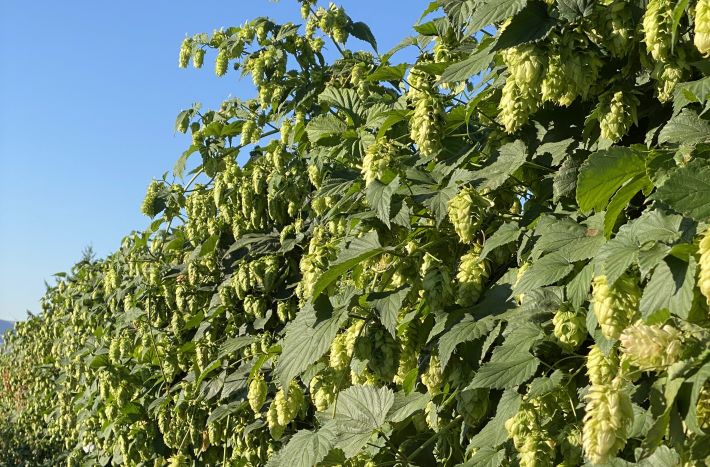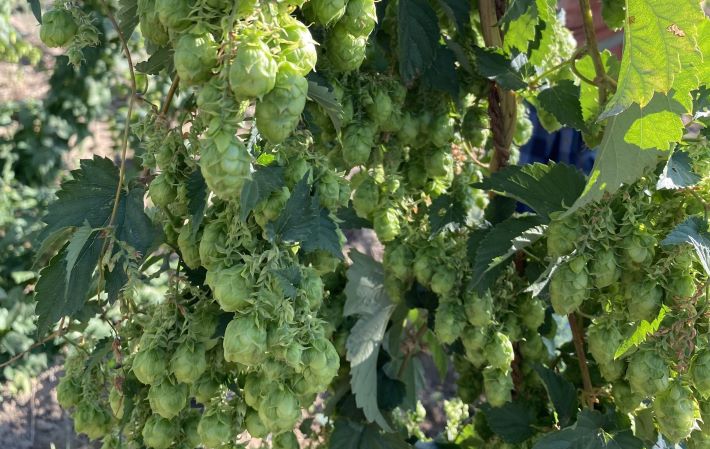
Hops and hop people in the Yakima Valley and the Willamette Valley commanded my full attention last week, so pardon the brevity today. (Speaking of brevity, a programming note: no links next week, and perhaps the week after. Holiday, then GABF weekend.)
It was Sunday before I had time to read Alan McLeod’s Beer News Notes and Boak & Bailey’s nuggets. If you haven’t visited those two, now would be a good time to head there and click on.
One quick bit of musing about heritage, the result of a Pete Brown post at X that McLeod points to. The photos at the top and bottom were taken in USDA research fields near Prosser, Washington. The babies in the seedling field (top) are cute, don’t you think? The odds are very much against them ending up with a name and being used to brew beer. But if that happens, farmers will know they are agronomically prepared to survive in a climate wild hop plants in Mongolia did not know five million years ago.
A constant topic of discussion last week was the Great Centennial Disaster. In recent years, farmers in the Yakima Valley have harvested about seven to eight bales of Centennial per acre planted. This year, some fields produced only two-plus bales per acre. Not every field was such a disaster, but when the USDA releases harvest data in December the results will not be pretty.
This raises a question about if it is environmentally responsible for brewers to make beer with hops that require farmers to use additional resources as the climate changes. Centennial is a pretty special cultivar. Try to imagine Bell’s Two Hearted without it. Can’t do it, can you? I’m not prepared myself to answer the question about environmental responsibility when it comes to Centennial, Saaz, Hallertau Mittelfrüh or several other wonderful hops. But I’ll keep asking it.
An aside: As well as the discussion about heritage and authenticity that followed Brown’s question on X there was Josh Noel’s post showing vintage beer hats for sale. That’s nostalgia. Heritage and nostalgia are not the same. The distinction is important.
Finally, the hops pictured below are a reminder of why they are categorized as experimental. This plant won’t be returning in 2024.
